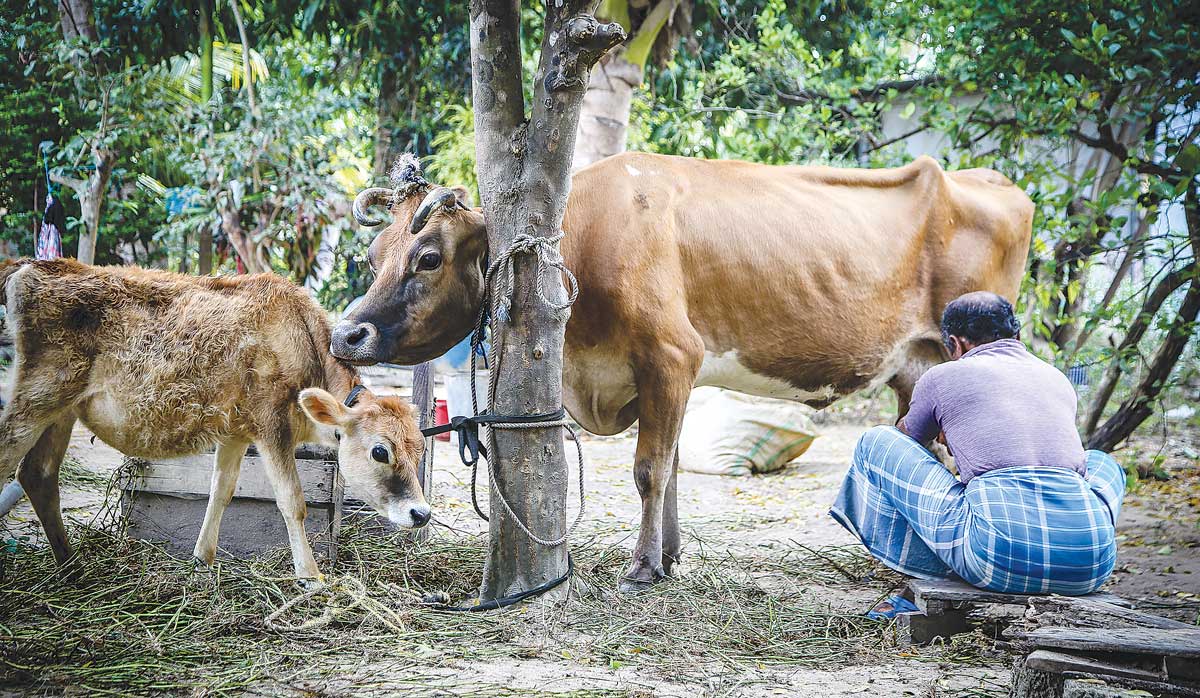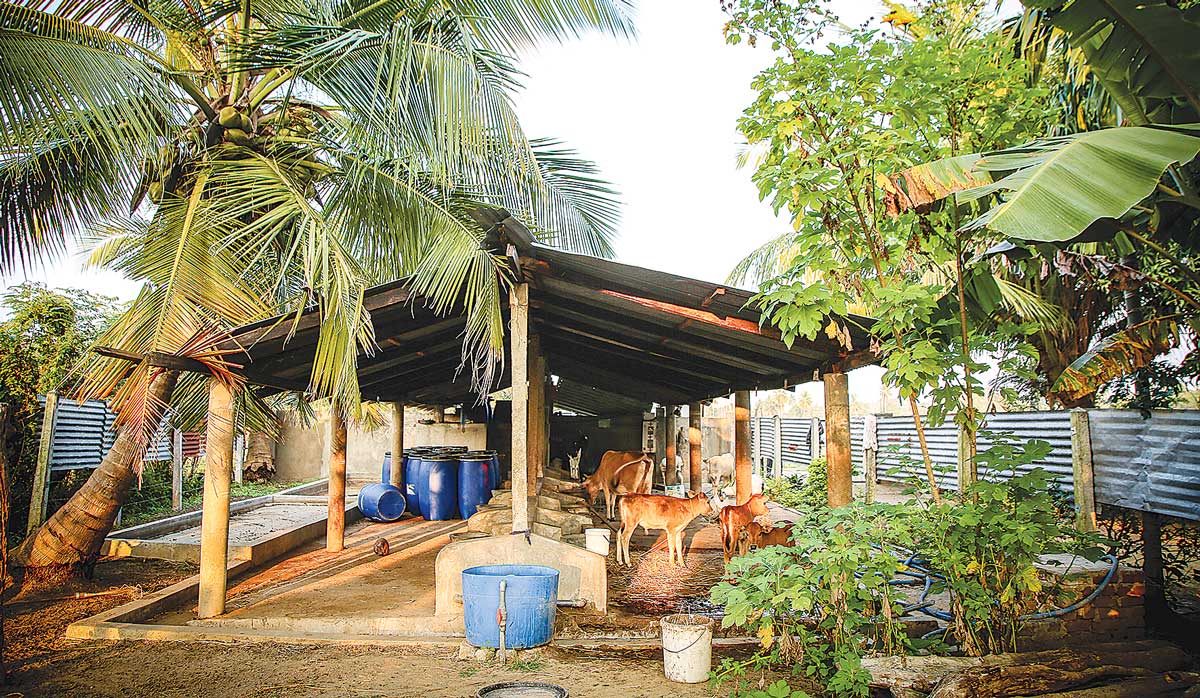Battle for milk
OPINION: Fonterra may be on the verge of selling its consumer business in New Zealand, but the co-operative is not keen on giving any ground to its competitors in the country.
Waikato dairy farmer Ross Wallis is making a difference to thousands of people in Sri Lanka by sharing his dairying knowledge.
The sixth-generation farmer never planned to go into the family business, but today he farms family land at Raglan and is a Fonterra Shareholders Councillor.
Wallis recently returned from his fourth trip to Sri Lanka, where he has been helping progress a Tearfund social enterprise which uses dairying as a way to help rebuild communities and get people back on their feet after 25 years of civil war.
Many families had one or two cows for their personal use, but never as a reliable source for income.
With help from the Tearfund programme, farmers are provided with support and knowledge to increase milk production and make a living out of dairying. Eight years ago just eight farmers in one district produced 150 litres of milk a month.
Now, 1,400 farmers are producing 500,000 litres a month, and 4,500 farmers are signed up into farmer co-operative groups.
As a Fonterra supplier, Wallis’ milk goes to the Te Rapa processing plant where it becomes Anchor milk powder that is shipped to Sri Lanka.
“I’m just a Kiwi dairy farmer, sharing what I know,” he says. “My milk’s been going to Sri Lanka for over 40 years from the Waikato. I think we owe it to them. This is a huge opportunity for dairy farmers to give back.”
 |
|---|
|
A Sri Lankan farmer milking cows. |
The advice New Zealand farmers like Wallis can offer is “really simple stuff about feeding cows the right way and keeping them watered.”
He mentions simple changes like providing shelter, giving them access to water all day rather than just in the evening, letting them roam freely rather than being tied up, and separating the calves.
As an example “they might use hay, or gather one armload of long, dry elephant grass for the day’s feed - we teach them about how quantity and better quality of feed will help increase their production.
“It’s generally small, manageable changes that are easy to implement and make all the difference.”
The learning is pitched at a locally relevant level, that takes into account local conditions – such as how to manage insemination when semen has to be transported long distances, to multiple farmers with one or two cows each, in a hot climate with unreliable temperature controls.
One of the main objectives of the programme is to help rebuild communities after the devastation of war.
It is designed to create self-managing cooperatives – Tearfund provides residential training at a demonstration farm for ‘model farmers’ who then return to their communities, implement the changes and pass on their learning.
 |
|---|
|
A typical dairy farm in Sri Lanka. |
Organised into groups of 60-100 farmers in an area, the farmers support each other and pool their milk at collective chilling centres for transportation to one of seven processing plants.
They are also paid collectively, and the group fund provides low interest loans to the group members – at 6% rather than the 50% government loans that would add to the crippling debt many of them already carry.
Community mobilisers, usually women, keep an eye on what’s happening in their group and co-ordinate with each other: “They run a tight ship!” says Wallis.
Going beyond aid, the programme partners with New Zealand and local organisations to develop a self-sustaining social enterprise that can pay for the aid it delivers.
Wallis’ latest trip to Sri Lanka was as a recently elected member of Tearfund NZ’s Board and focused on providing guidance on getting the right structure in place to support self-sufficiency.
And the effects of the collaboration go beyond that – as the communities work together and regain their confidence and voice, other changes start to occur.
“Youth clubs are forming, there are rallies about social issues such as violence towards women and children - the impact it is having on people’s lives goes far beyond just nutrition and making a living,” he explains.
“For me, getting involved was a no brainer,” says Wallis.
A costly war
The Sri Lankan civil war killed around 90,000 and internally displaced about 280,000 between 1983 and 2009.
In the north east dry zone rural region, where the Tearfund dairy project is located, people are very traditional, so working in the rice fields is a man’s job and milking the cows is a woman’s job. More than 30% of households had lost a man in the war, and the women didn’t know how to work in the rice fields.
This left few ways for some women to earn an income for their families.
Through Tearfund’s dairy project, farmers living below the poverty line in Sri Lanka are now earning a much-improved monthly income.
The World Wide Sires National All Day Breeds Best Youth Camp Best All Rounder plaudit has become family affair, with 2026 Paramount Cup winner Holly Williams following in her sister Zara's footsteps.
DairyNZ is giving New Zealand farmers a unique opportunity to gain hands-on governance and leadership experience within the dairy sector.
Herd improvement company LIC has posted a 5.2% lift in half-year revenue, thanks to increasing demand for genetics.
According to the latest Fresh Produce Trend Report from United Fresh, 2026 will be a year where fruit and vegetables are shaped by cost pressures, rapid digital adoption, and a renewed focus on wellbeing at home.
The Roar is a highlight of the game hunting calendar in New Zealand, with thousands of hunters set to head for the hills to hunt male stags during March and April.
OPINION: The past few weeks have been tough on farms across the North Island: floods and storms have caused damage and disruption to families and businesses.